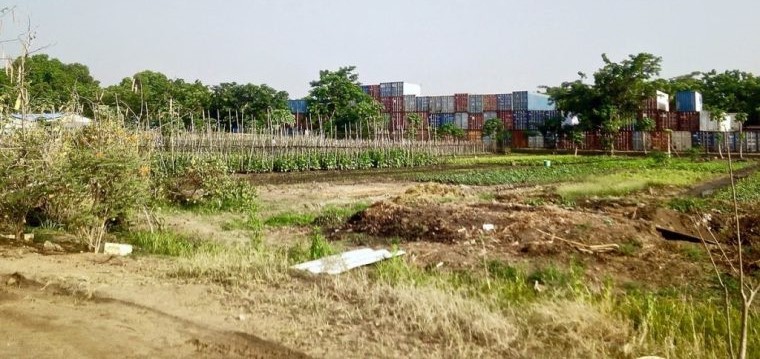In war-torn South Sudan, disputes over land ownership, especially in urban areas, are adding to the tensions already afflicting the country. A lack of a stable system of land ownership has contributed to a spate of land grabbing and a backlog of ownership disputes.
Any citizen has the right to own a piece of land in any part of the country to use for personal benefit as enshrined in the Bill of Rights in the Constitution of South Sudan, but this right is linked to accompanying laws regulating land ownership according to legal procedures in the country.
Lawyer and human rights activist, Deng John Deng, said that the constitution of South Sudan grants the right to any citizen to own a plot of land in any part of the country by following the legal procedures of obtaining official documents for the plot of land from the Ministry of Infrastructure and Planning of the state and local governments.
“By signing the lease contract for the residential plot between the citizen and the state for a period ranging in some cases to thirty years, and then continue to obtain a search certificate from the Department of Land Records in the capital, Juba, which belongs to the judicial authority under the responsibility of the General Registrar of Lands in South Sudan, and then the Ministry of Infrastructure determines a plot land,” Deng said.
He added, "There are three official documents which confirm your legal ownership of the land and protection by law. They are the search certificate, the sketch, and the lease contract.”
The land law in South Sudan regulates and governs the settlement of land issues.
“Any person who owns a piece of land legally may not be expropriated from it, except in exceptional circumstances for the public benefit of the state. In the event, for example, the government wants to build a hospital or a school on this plot, it will be removed from you and compensated in a satisfactory and just manner, and otherwise, it is not permissible,” Deng said.
Chief Marino Feta Marcellino says that the land issue has become a concern for them because the phenomenon of land grabbing is now frequent.
"Any citizen who wants a plot of land must go to the local chiefs to obtain the plot of land in accordance with official procedures to avoid the widespread plundering of land in South Sudan, especially in the capital, Juba," Feta said
Asunta Kakoli Modi was born in the Gumba area of Juba where she grew up and is married, but she has not been able to own land. She says that the process of planning land distribution in the area has become very difficult, as the citizens who have lived in the land for a long time have not been taken into consideration.
"Simple citizens like us will not be able to obtain a plot of land because of the spread of financial corruption in the country. The government must help and provide plots of land for us. Where do we go in case we are expelled from this place?" Kakoli wondered.
Samsona Lado Kolleng, a South Sudanese citizen, says that he acquired land by following the correct procedures by applying to the local community.
Lado explained, "I obtained the consent of the community by registering with the local chiefs, and then we followed the official procedures in the Ministry of Infrastructure and the court to register the land and obtain documents protected by the legal force of the ownership of the plot."
The Commissioner of Juba County, Charles Joseph Wani, says that government policies for planning and distributing land in the country start from the local community and end with the official procedures with the government because the law says that the lands belong to the local community, so the community begins by giving the green light to titling the land, and then the local government organizes the official procedures for any citizen who owns a plot of land.
“You start the procedures with the local community, but if they reach the government, the lands become government property and the community has no right to them. At that time, the government sets plans and organizes for its distribution to the population of South Sudan in general," Commissioner Wani explained.
According to the human rights activist, Professor Peter Ben, the issue of land ownership in South Sudanese communities has become an investment process as most citizens are trying to invest in the sale of land, which has created problems in the country.
"The best way to ensure that the land issue is resolved, the government has to organize the distribution process and support local communities to avoid entering into conflicts or disputes with some citizens over how to obtain land," Prof. Ben said.




